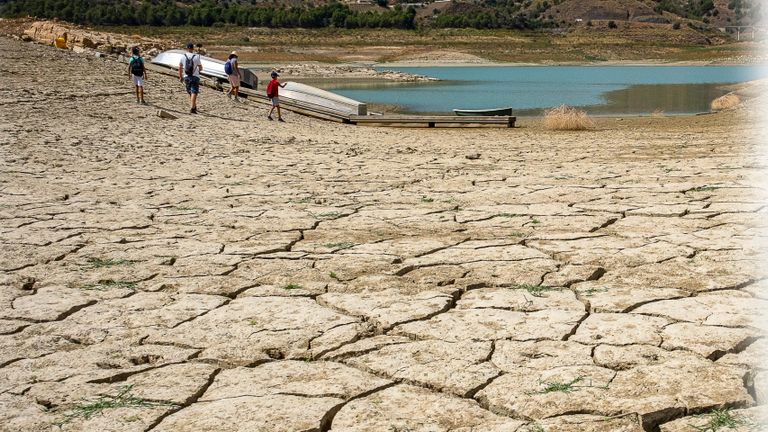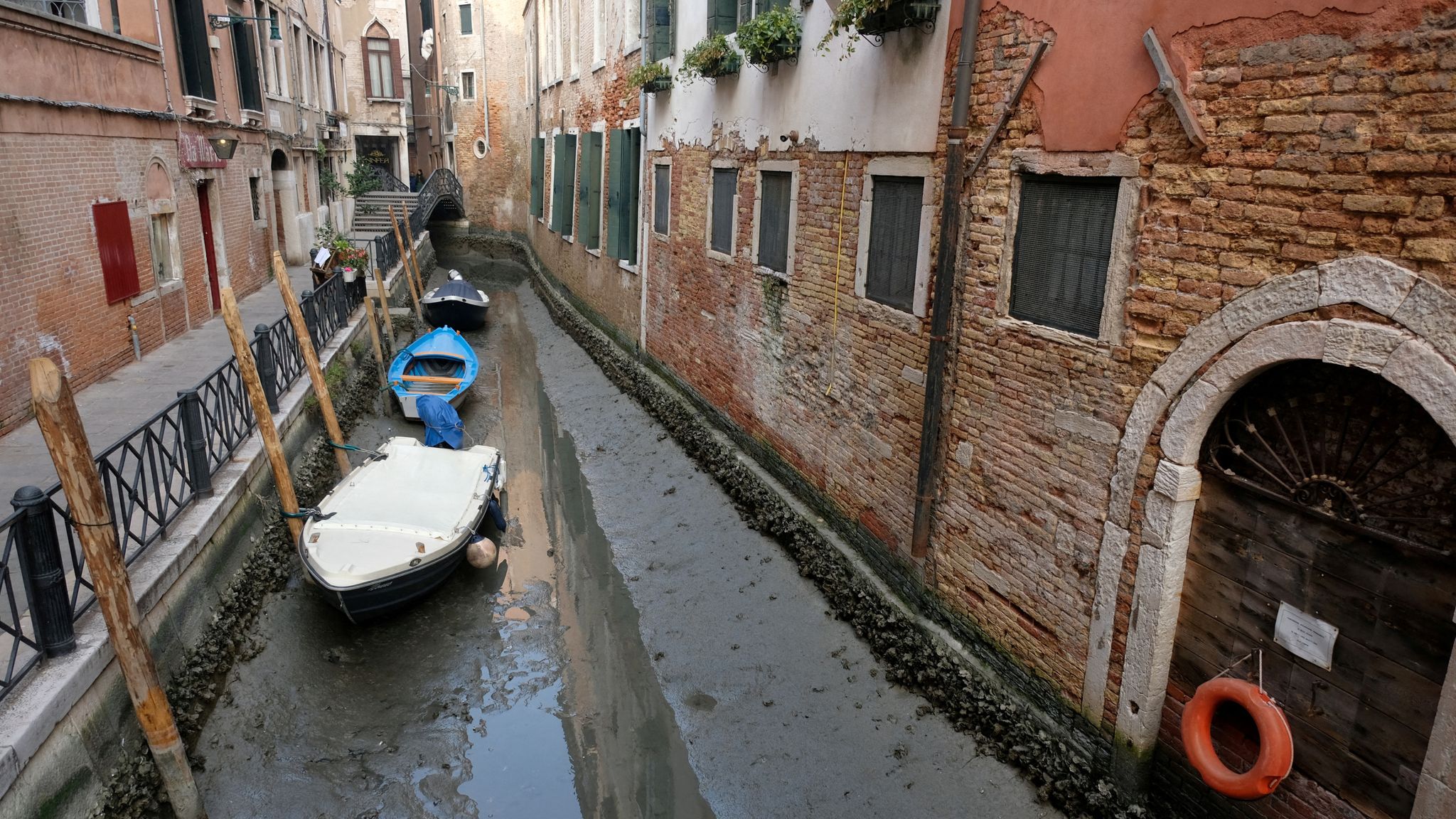
Rising temperatures mean its snow is melting, rivers are dwindling, canals are drying up and punishing droughts persist.
It is having a huge impact.
According to the European Drought Observatory, more than a third of the continent is currently under a drought warning, with 10% experiencing severe drought.
This has been going on in various forms since 2018 and it has been estimated that the total water loss across Europe is about 84 billion tonnes per year.
And a recent major study by a university in Austria suggested that Europe is now regularly losing much more groundwater than is being replaced by rainfall.
Torsten Mayer-Gürr, who is one of the study authors, said: "A few years ago, I would never have imagined that water would be a problem here in Europe …. Now it looks like we could face problems."
In parts of France and much of Spain, water restrictions are in place.
Leaders of both countries have said that a lack of fresh water is a critical national issue.
In April when temperatures in southern Spain reached a record breaking 40c, Prime Minister Pedro Sanchez told parliament: "The government of Spain and I are aware that the debate surrounding drought is going to be one of the central political and territorial debates of our country over the coming years."
France's President Emanuel Macron has launched a water crisis plan this year to conserve the precious resource after an unusually dry winter following the country's worst drought on record left its reservoirs 80% below normal levels at the beginning of March.
In a speech he warned that climate change threatened the "end of the abundance of land and materials including water".
The situation is causing conflict, with French environmentalists recently clashing with police over plans to build huge reservoirs to help commercial agriculture businesses keep crops alive.
In Portugal, drought has spread over 90% of the mainland, prompting the government to request EU aid for struggling farmers.
And in Germany the government is so worried about water security for Europe's largest economy it has developed a national water strategy for the first time.
"The consequences of the climate crisis for people and nature are forcing us to act," Environment Minister Steffi Lemke said in a statement.
Drought is a complicated thing.
Water mismanagement is a big problem.
EurEau, the European federation of national drinking water service providers, has estimated that the continent loses about 20-25% of its drinking water just because of leaks from pipes.
Overconsumption and illegal water use is a major problem too.
In Spain there have been concerns about strawberry farmers in the south of the country impacting the Donana wetlands, which is an important and fragile eco-system.
Consumption as the world heats up is likely to grow.
In England and Wales for example we use about 14bn litres of water a day.
The National Audit Office has predicted that we will need an extra 4bn per day by 2050 to counter the growing risk of drought from climate change.
The role of climate change in all of this is significant.
Lots of parts of Europe have always experienced natural cycles of drought, but climate change is a force that is making things much worse.
That's for a few reasons.
Generally higher temperatures mean there is more evaporation from the ground, rivers and lakes, reducing available water.
On top of that scientists say climate change is making extreme events like heatwaves more likely, more intense, and longer in duration.
This bakes the ground hard, so water from intense rainfall flows over it rather than soaks in - which can increase the risk of flash flooding.
Another issue is ice, or lack of it.
Europe's glaciers are shrinking at an unprecedented rate, depriving major rivers and reservoirs of replenishment over time.
The Rhine river in Germany is a good example of this - it got so low in 2022 - Europe's hottest ever summer - that cargo ships could not use it.
The impact of drought can be profound, even in relatively wealthy economies.
A major consequence is food production.
In Spain, farmers are warning of crop failures and irreversible losses, especially to cereal growers.
Dry ground and vegetation means wildfire seasons are starting earlier and burning more intensely, as was observed in Spain, Portugal and France last year.
Ecosystems and habitats also really start to suffer without enough water.
Rivers and wetlands are particularly vulnerable, with knock on impacts for fish and bird life.

Drought can even impact energy security.
Last year a lack of rainfall affected Norway's hydropower production and in France they had to reduce nuclear power output because there wasn't enough river water to cool the stations.
Reduced rain and snowfall impacts tourism too.
Last winter the Alps received less than half their normal snowfall.
Earlier in 2023, a lack of rain contributed to the canals in Venice running dry.
In some parts of France it is now illegal to refill swimming pools and in the south of the country sales of above ground garden swimming pools have been banned.
The UK and large parts of Europe have always enjoyed abundant fresh water, but we are starting to see how climate change threatens a precious resource that we often take for granted.